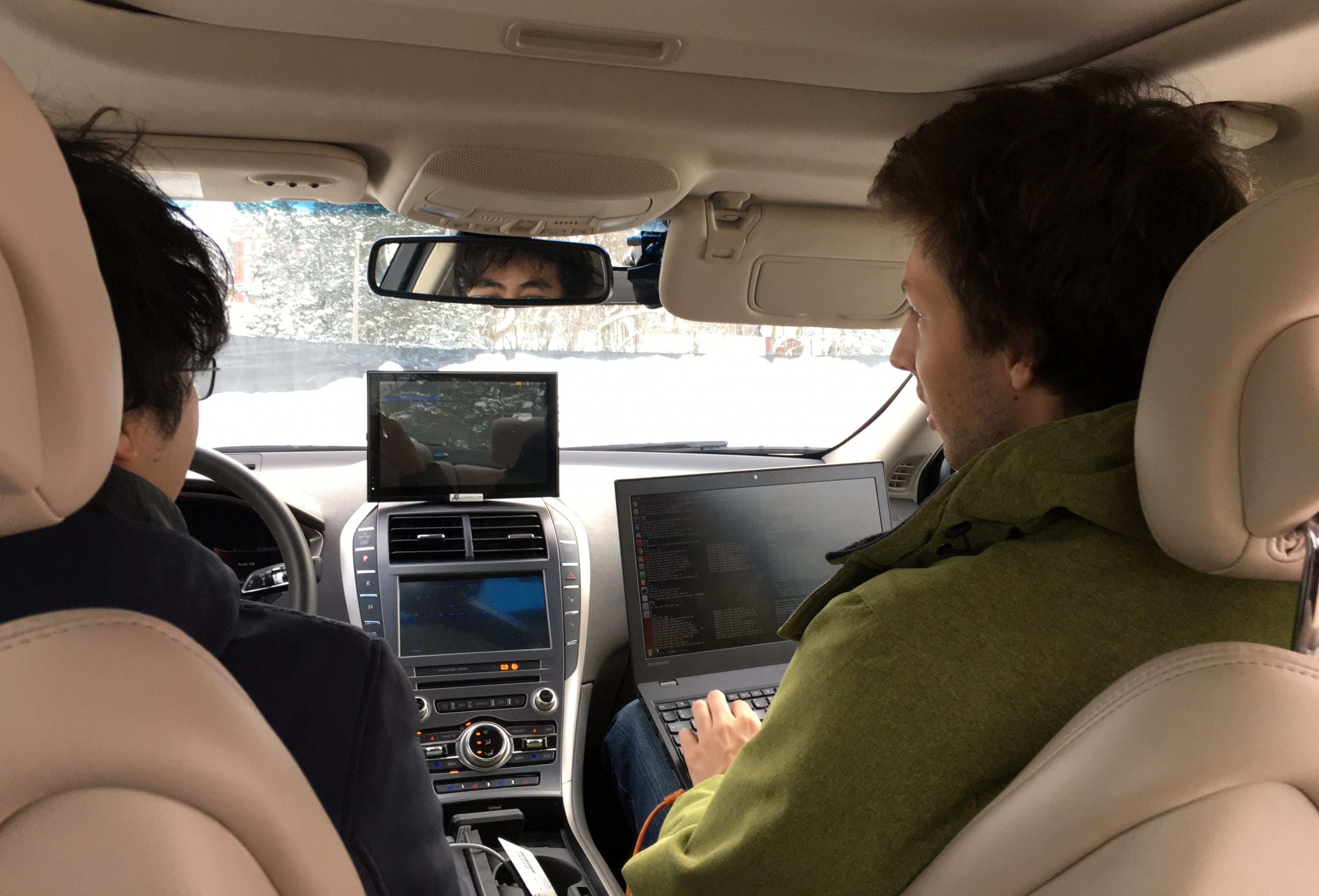Expertise in autonomous vehicles has taken a team led by three Waterloo Engineering professors from a snow-covered parking lot in Stratford to a demonstration course in sunny Las Vegas.
More than 25 researchers from Waterloo are at the high-profile Consumer Electronics Show (CES) in Las Vegas this week to help showcase a highly automated car developed by Renesas Electronics America in collaboration with numerous partners.

Key contributions by the Waterloo team included a framework architecture of computer programs to enable the modified Lincoln MKZ to operate autonomously and safety mechanisms such as a pull-over feature in the event of a system failure.
“We brought the programming and the safety to the table,” said Sebastian Fischmeister, a professor of electrical and computer engineering, and director of the Real-time Embedded Software Group.
Unveiled at CES today, the self-driving Renesas prototype uses sensors and powerful computers to detect and respond to other vehicles, stop signs and traffic lights. Vehicle-to-infrastructure communications allow it know in advance, for instance, when a light is about to change.
Work on project began in June
The other faculty members involved in the project are Steven Waslander, a mechanical and mechatronics engineering professor, and director of the Waterloo Autonomous Vehicles Laboratory (WAVELab), and Krzysztof Czarnecki, an electrical and computer engineering professor who is cross-appointed to the Cheriton School of Computer Science and directs the Generative Software Development Lab.
Along with graduate students and research associates, they began working on the project in June. Before leaving for the CES, which runs Jan. 5-8, the team did extensive testing of the car at a local facility and in a Stratford parking lot set up to duplicate the Las Vegas demonstration site, with the added complexity of harsh winter weather.
The Renesas vehicle uses the same Lincoln base model as an automated University of Waterloo car nicknamed Autonomoose that was approved by the provincial government in November as one of the first three vehicles to be tested on public roads in Ontario.
Waterloo positioned to be a 'leading player'
The goal of that three-year project, operating under the umbrella of the Waterloo Centre for Automotive Research (WatCAR), is to progressively add and integrate automated features on the path towards fully self-driving vehicles in all conditions.
“We’re very well-positioned, if we just continue this organic growth, to be a leading player academically in North America,” said Ross McKenzie, managing director of WatCAR.
Specific goals of the Autonomoose research program include improving automated driving in challenging Canadian weather conditions, further optimizing fuel efficiency to reduce emissions and designing new controls that operate on advanced artificial intelligence computers.